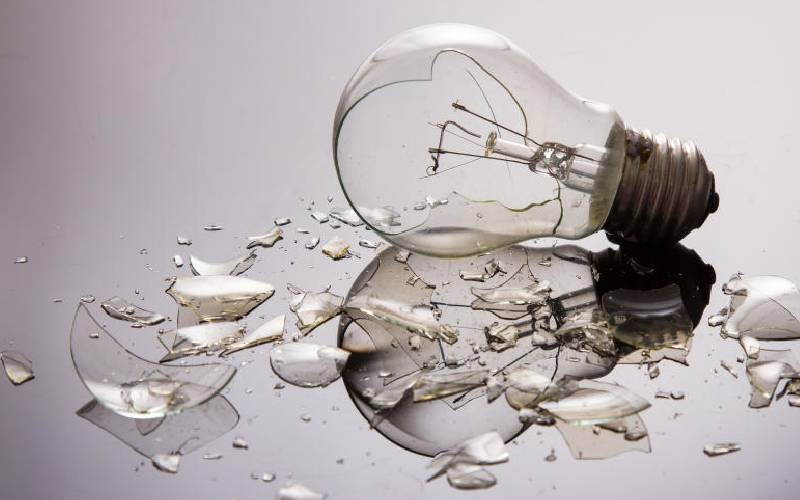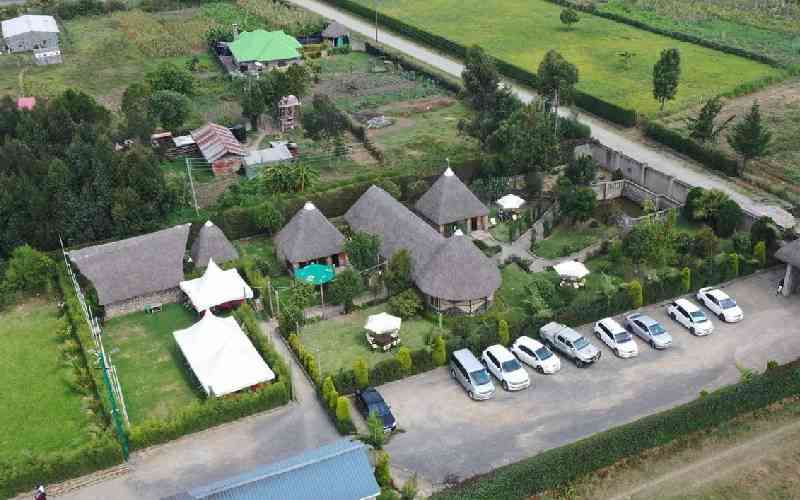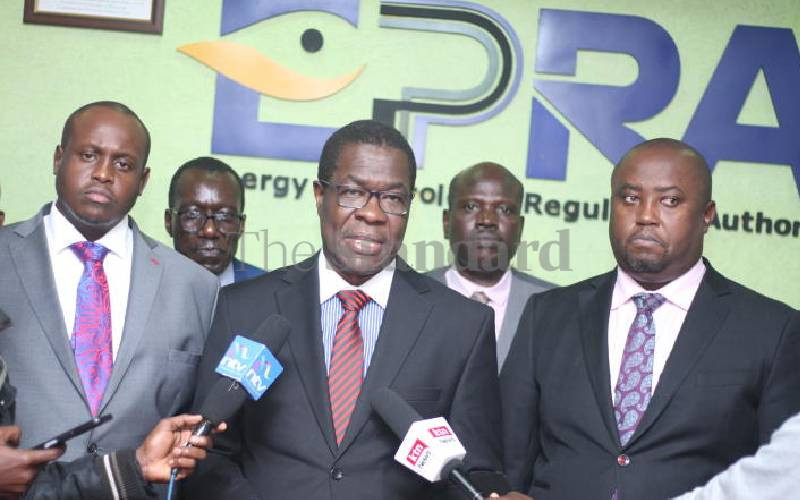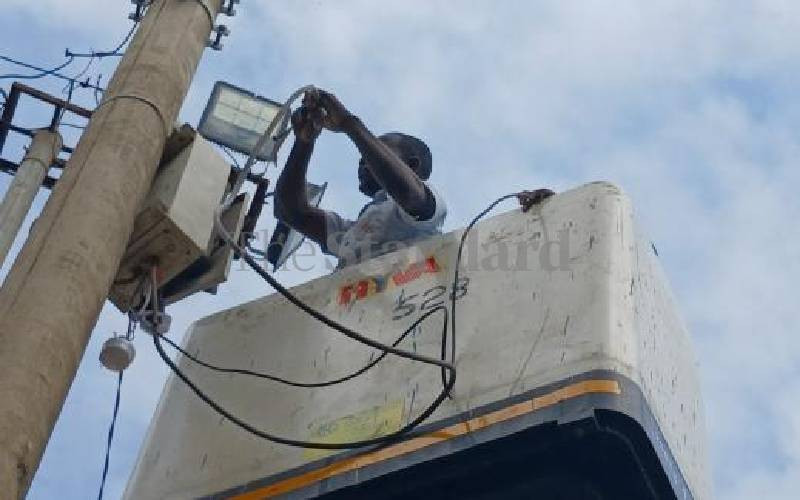
The tariff that was gazetted by the Epra will be in place until December this year, which will warrant another tariff review next year. [Coourtesy]
The government last Friday cut the cost of electricity, bringing to fruition one of the Jubilee administration’s promises that has been almost 10 years in the making.
While the regime had an ambitious plan to cut the cost of power by up to 50 per cent, the opposite has been true, with bills consistently rising over the years.
A household that consumed 200 units of power in December paid Sh5,185, a 53 per cent increase compared to 2014 the same amount of units cost Sh3,373 on average, according to data by the Kenya National Bureau of Statistics (KNBS).
But following the gazettement of new electricity tariffs, this will now go down by an initial 15 per cent.
President Uhuru Kenyatta’s quest for lower power prices had been elusive until now, having in the past issued directives that could not be implemented due to the lack of a supporting legal framework.
Indeed, his directive on Jamhuri Day for a 33 per cent reduction in power prices had senior energy sector officials at a loss on how to go about it.
Energy and Petroleum Regulatory Authority (Epra) had expected Kenya Power to submit a tariff review application.
The power distributor, on the other hand, expected the industry regulator to move ahead and gazette a new tariff for it to implement, with tariff review falling under its mandate and does not need to be nudged into action to initiate the process.
This resulted in Kenyans missing out on the Christmas present promised by the President during his Jamuhuri Day address.
The tariff that was gazetted by the Epra will be in place until December this year, which will warrant another tariff review next year.
President Uhuru’s push for lower power costs is as old as his presidency. When the Jubilee administration came into power in 2013, one of the major plans it laid out was the ambitious plan to increase the country’s electricity generating capacity by some 5,000 megawatts (MW).
The Energy Ministry at the time explained that it was working on raising electricity demand, driven by such projects as an electrified Standard Gauge Railway, the Konza Tech City and the Lamu Port South Sudan–Ethiopia Transport (Lapsset) initiative as well as private sector projects, including steel and cement mills and mining activities.
A senior Energy Ministry official in a past interview explained that the projects would correspond with the planned additional 5,000MW of electricity to the national grid.
This would see the country take advantage of economies of scale on both the demand and supply sides, with the net effect being reduced cost of power for both industries and domestic consumers. “The projects have either been delayed or not done. There are also no major industries as a result of devolution. There are a few like the Makueni processing plant, but it is not the growth that we had anticipated when we came up with the 5000MW.
“Since there was no demand, we scaled back. If we had gone ahead, we would have ended up with a lot of power that is not needed, and that would have made the situation much worse in terms of the cost of power.”
And this perhaps killed the first attempt by the Jubilee government to bring down the cost of electricity in the country.
But the government would make other attempts in 2016 when President Uhuru ordered the review of all contracts that Independent Power Producers (IPPs) have with Kenya Power. The directive was expected to drastically reduce the cost of power as well as drive the coverage of electricity in the country.
The President then noted that Power Purchase Agreements (PPAs) between IPPs and Kenya Power should be pegged on performance to ensure consumers have access to reliable power at affordable rates.
The Energy Ministry was, however, unable to renegotiate the contracts.
It was not until December 2016 that the ministry formed a committee to look into the contracts and advise it on the way forward.
The committee led by Prof Izael Da Silva from the Strathmore University would take long before getting back to the ministry and sought several extensions from the initial six months it had been given to complete the task. The committee reported back in August 2018, with its verdict that it would be too costly to terminate or review the PPAs. The task force recommended that the Energy Ministry leave the contracts to lapse.
Some of the contracts extend beyond 2030, which meant that Kenyans would continue grappling with higher charges associated, with clauses in the PPAs guaranteeing the power producers income even when they do not supply Kenya Power.
But a recent report by the John Ngumi-led task force offers some hope to the utility firm to wiggle out of the expensive contracts. The report by the Presidential Task Force on the Review of PPAs found that nearly all power producers have at some time been in breach of their contracts with Kenya Power.
This means the Energy Ministry and Kenya Power could force the IPPs to renegotiate the contracts.
The task force even noted that some breaches are to the extent that Kenya Power could legally terminate the contracts.
Renegotiation of the contracts is one of the recommendations by the task force to reform the sector. Others include the 33 per cent reduction in power costs by December 2021 but which will now be implemented in two tranches of 15 per cent. The first tranche was gazetted last Friday, while the other one is expected to be in place by the end of this quarter.
Under the new tariff, which will be in effect between January and December 2022, households falling within the Domestic Lifeline category will now pay Sh7.70 per unit before taxes and other components are loaded.
Consumers within this category, who use less than 100 units of power monthly, are subsidised and had been paying Sh10 per unit of power bought from Kenya Power.
Other domestic consumers will pay Sh12.60 per unit, down from Sh15.80 previously. Commercial and industrial consumers were also given a similar reduction.
Heavy consumers, under category CI5, will pay Sh7.60 per unit, down from Sh10.10. These are large manufacturers, which make up a small fraction of Kenya Power’s customers and are metred at 132,000 volts.
The Energy Ministry noted that it would press on with implementing this and other recommendations by the PPA task force with the aim of reforming the power sector.
 The Standard Group Plc is a multi-media organization with investments in media platforms spanning newspaper print
operations, television, radio broadcasting, digital and online services. The Standard Group is recognized as a
leading multi-media house in Kenya with a key influence in matters of national and international interest.
The Standard Group Plc is a multi-media organization with investments in media platforms spanning newspaper print
operations, television, radio broadcasting, digital and online services. The Standard Group is recognized as a
leading multi-media house in Kenya with a key influence in matters of national and international interest.











